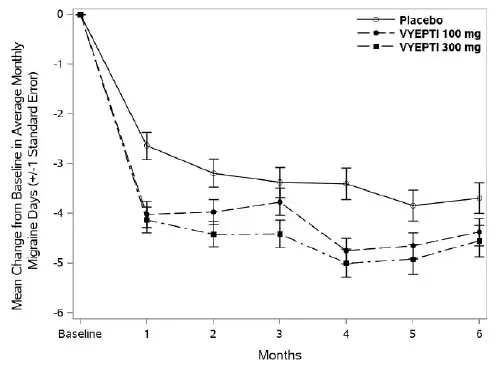Diet and Nutrition: The Healthiest Coffees
The Information On The Site Is Not Medical Advice. We Do Not Sell Anything. The Accuracy Of The Translation Is Not Guaranteed. Disclaimer
Free-Radical Fighter

You may be in it for the caffeine but coffee is full of antioxidants. One cup has 200-550 milligrams of antioxidants including chlorogenic acid a compound that helps your body process fat and sugar. Antioxidants lower inflammation reduce your risk of chronic disease and stabilize free radicals. Robusta and Arabica beans have similar amounts of antioxidants after being roasted. Light roast has more than dark.
Hot Brew vs. Cold Brew

If you're looking for antioxidants stick with hot-brewed coffee. It has more because it takes a certain amount of heat to extract antioxidants from the bean. But if it's caffeine you're after cold brew will give you a stronger jolt. Cold brew is also lower in acid and a better choice if you have acid reflux.
The Perfect Cup

The healthiest way to take your coffee is hot-brewed and black. One cup has virtually no calories or carbs no fat and is low in sodium. Black coffee also has micronutrients including potassium magnesium and niacin.
Coffee Don’t: Excessive Sugar

Coffee starts out healthy but sugar and flavored sweeteners add fat calories and a higher risk of heart disease. Aim for 1 teaspoon of sugar (or less) per cup of the 6 (women) or 9 (men) teaspoons recommended per day by the American Heart Association. At coffee shops one pump of flavoring has about one teaspoon of sugar. At home flavor your coffee with vanilla or almond extract.
Coffee Don’t: Overdoing Dairy

Milky coffee drinks contain either sweetened condensed milk heavy whipping cream or whole milk often with whipped cream on top. That's a lot of fat and calories in every sip. For example an ounce of heavy whipping cream adds more than 100 calories. Sub with whole milk (19 calories per ounce) fat-free milk (10 calories per ounce) or unsweetened almond or soy milk.
Coffee Don’t: Bigger Is Better

If you go big on fat and calories opt for the small cup instead of the large. It's OK to indulge in a flavored latte or sweetened seasonal drink once in a while especially if you save yourself a lot of extra calories sugar and fat by ordering the smallest size.
Opt for Organic

Coffee beans are one of the most heavily sprayed crops in the world. Many pesticides are removed through the washing or roasting process but not all. Look for an organic certification seal on the packaging of coffee you buy in a store and for the word 'organic' on menu choices in your coffee shop.
Healthy or Hype: Turmeric Coffee

Healthy. Turmeric has curcuminoids or anti-inflammatory compounds that may have a positive effect on diabetes and cancer. Add it to hot black coffee but steer clear of sugar syrups or heavy creamers that add fat and calories.
Healthy or Hype: Egg Coffee

Hype. Also called Vietnamese or Swedish coffee egg coffee is made by beating an egg yolk with sweetened condensed milk then adding it to espresso or iced coffee. Sweetened condensed milk is high in sugar and raw eggs can contain the bacteria salmonella that causes 1.35 million infections every year.
Healthy or Hype: Mushroom Coffee

Healthy. Mushroom coffee isn't made of mushrooms -- it's coffee plus mushroom extract typically from lion's mane chaga cordyceps or reishi mushrooms. It has less caffeine and doubles down on the inflammation-reducing antioxidants so it's good for you as long as you don't load it down with sugar and cream. There's not enough research to back up all the health claims yet such as an immune system boost.
Healthy or Hype: Nootropic Coffee

Healthy unless you're sensitive to stimulants. Also called smart drugs nootropics are compounds that increase your memory creativity motivation and attention. Caffeine is one so coffee is naturally nootropic. Any nootropic coffee you order may have stimulants -- natural or manufactured -- beyond caffeine. The FDA doesn't regulate nootropics so it's impossible to prove their claim
Healthy or Hype: Vitamin Coffee

Hype. Adding vitamins to coffee sounds like a good idea but coffee's diuretic properties make you pee at a faster rate than normal. You'll lose any water-soluble nutrients you take in before you can absorb them. Coffee also blunts absorption of minerals like zinc calcium and iron. Plan to take your vitamins an hour before or after you drink coffee.
Diet and Nutrition: The Healthiest Coffees
Sources: 
IMAGES PROVIDED BY:
- shapecharge / Getty Images
- georgeclerk / Getty Images
- taa22 / Getty Images
- Westend61 / Getty Images
- Vkelocity Images / Getty Images
- Witthaya Prasongsin / Getty Images
- andresr / Getty Images
- krisanapong detraphiphat / Getty Images
- Rafa Elias / Getty Images
- Karel Bock / Getty Images
- Jose Luis Pelaez Inc / Getty Images
- Ratana21 / Getty Images
REFERENCES:
- U.S. National Library of Medicine National Institutes of Health: 'Antioxidant and Antiradical Activity of Coffee' 'Roles of Chlorogenic Acid on Regulating Glucose and Lipids Metabolism: A Review.'
- Danielle Feinberg registered dietitian nutritionist Jersey City NJ.
- Mayo Clinic: 'I'm trying to lose weight. Should I cut back on coffee?'
- Coffee & Health: 'Compounds in Coffee.'
- Harvard Health Publishing: 'The Sweet Danger of Sugar.'
- Northwestern Medicine: 'How to Make Your Coffee Shop Order Healthier.'
- Journal of Agricultural and Food Chemistry: 'Effect of Household Coffee Processing on Pesticide Residues as a Means of Ensuring Consumers' Safety.'
- Center for Ecogenetics & Environmental Health: 'Health Risks of Pesticides in Food.'
- National Coffee Association of U.S.A.: 'Organic-Certified Coffee in the U.S.'
- Mayo Clinic News Network: 'Home Remedies: Are There Health Benefits of Turmeric?'
- NutritionalValue.org: 'Sweetened Condensed Milk sweetened by Best Choice.'
- CDC: 'Salmonella.'
- Cleveland Clinic: 'Mushroom Coffee: Should You Be Drinking It?'
- Evidence-Based Complementary and Alternative Medicine: 'Establishing Natural Nootropics: Recent Molecular Enhancement Influenced by Natural Nootropic.'
- U.S. Department of Agriculture FoodData Central: 'Milk whole 3.25% milkfat with added vitamin D.'
This tool does not provide medical advice. See additional information: 
THIS TOOL DOES NOT PROVIDE MEDICAL ADVICE. It is intended for general informational purposes only and does not address individual circumstances. It is not a substitute for professional medical advice diagnosis or treatment and should not be relied on to make decisions about your health. Never ignore professional medical advice in seeking treatment because of something you have read on the Site. If you think you may have a medical emergency immediately call your doctor or dial 911.
© 1996-2025 WebMD LLC . All rights reserved.












